#chamanism
Text
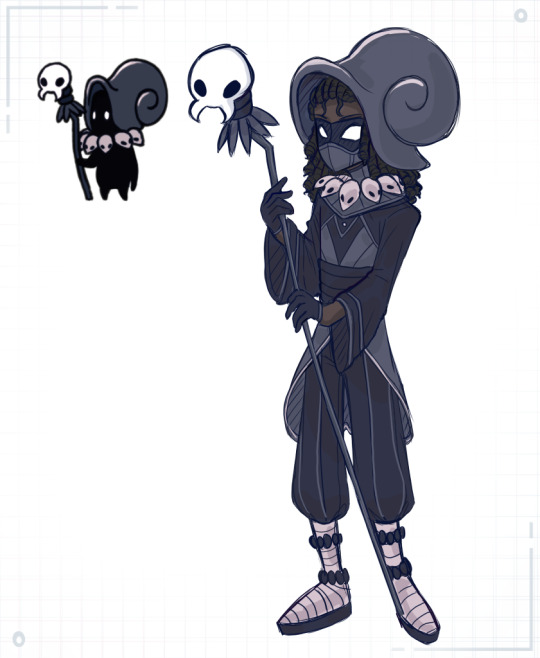


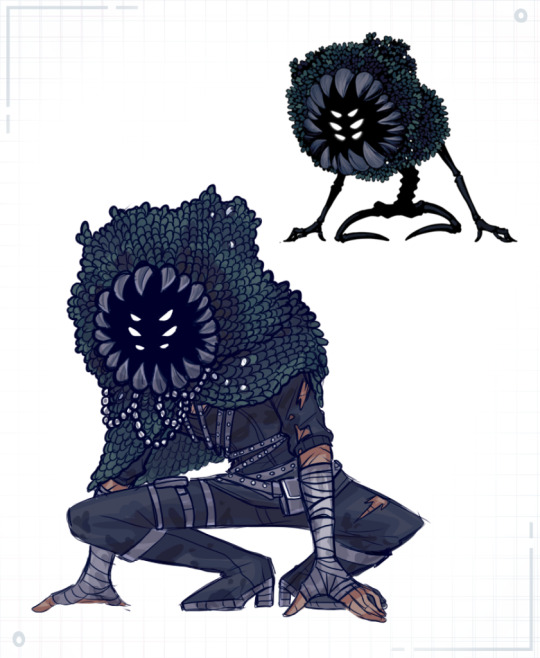
Am i insane enough to make all of the hollow knight characters into gijinkas? Perhaps...
#hollow knight#gijinka#mister mushroom#fierce dryya#snail chaman#the hunter#humanization#i mean i think i have made around 60-ish so far#the real question is#can we make them before silksong comes out?#im going to explode#snail shaman#<- there#i can't write im so silly goofy#my art
771 notes
·
View notes
Text
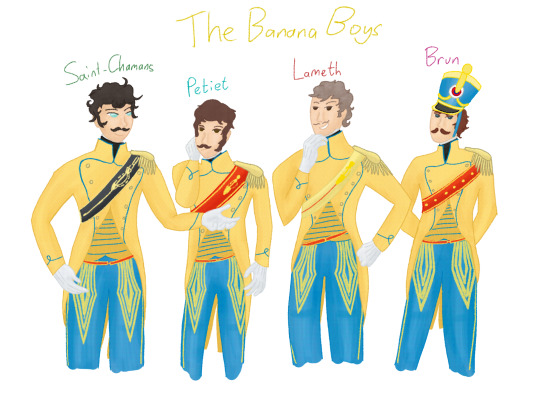
Presenting the Banana Boys the Aides-de-Camp of Marshal Jean-de-Dieu Soult, the excitable drunk collective blob military family of the grumpy asshole!
I’ve been enjoying reading about their shenanigans in @josefavomjaaga’s posts and wanted to draw them, especially as I’ve started having them appear in some writing snippets and RPs
From left to right we have
Alfred de Saint-Chamans, who once wondered why Napoleon was so interested in Soult’s ass and who thinks he deserves a medal too!
Auguste Petiet, who despite Soult being mean to him and not giving him a promotion because of a disagreement with Petiet's dad, is really proud of military daddy Soult
Alfred de Lameth, the jester who can't stop joking even when it offends Murat's wife and who got murked in Spain and made his fellow soldiers so sad they burned and slaughtered a village in revenge
Brun de Villeret, the sensible guy who got into a car crash because of Soult's distracted driving and who spent months trying to convince Napoleon that the rumours about Soult trying to make himself king in Portugal are mean rumours
I found references for all of them except Lameth, who died young and also his uncle is too famous so the image search is full of him and his stupid wig, so I pretty much just made up Lameth's appearance based on vibes.
There's more ADCs like Pierre Soult, the baby brother of Soult, Franceschi the Art Guy, Coco Lefebvre Who Physically Can't Stop Partying and others, but these four are probably the Main Characters in the writing I've done!
And also yeah Soult did decide that his assistants should be dressed in bright yellow shirts and sky blue pants.
#cadmus rambles#cadmus draws#jean de dieu soult#napoleonic wars#napoleonic era#alfred de saint-chamans#auguste petiet#alfred de lameth#brun de villeret#cad rambles about dead frenchmen on main
39 notes
·
View notes
Text
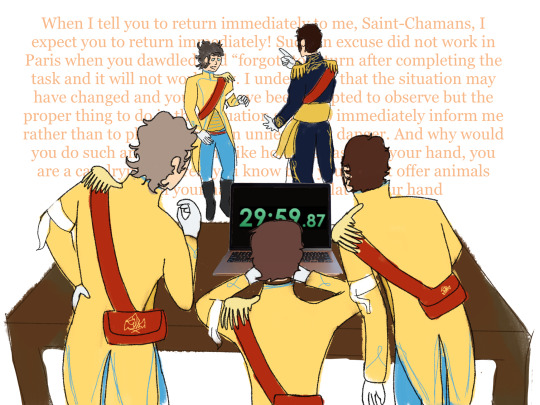
#the duke of dalmatia's aides de camp#visual records of the aides de camp#visual records of the duke of dalmatia#alfred de saint-chamans#alfred de lameth#auguste petiet#brun de villeret#jean de dieu soult
38 notes
·
View notes
Text
Lavalette about the "divorce"
This is taken from "The Memoirs of Count Lavallette". An interesting remark (allegedly) made my Napoleon at the time when he finally decided to give Josephine the boot:
A few days before he had sent for me. He had been looking out for some friend of the empress, who might help to sweeten the bitter about to be presented to her. His choice fell on me. "The nation," he said, "has done so much for me, that I owe her the sacrifice of my dearest affections. Eugène is not young enough for me to keep him for my successor; nor am I old enough to give up all hopes of having children, and yet by Josephine I can have none. The tranquillity of France requires my choosing a new consort [...]"
Emphasis by me.
This statement, if true, would mean that the idea of Eugène suceeding Napoleon indeed had been around and had been seriously considered, at least by some people at court. But much more interesting to me is the reason why it can't happen, according to Napoleon: Eugène is too old.
Eugène, by the end of 1809, had only just turned 29. And with Naps being 40 and often enough in danger of being killed either in war or through assassination - would a successor old enough to immediately take over not have been advantageous?
But of course, Eugène also had been trained in the art of governing a country ever since he had been made viceroy of Italy (this fact was probably what made him look to some as the likely successor - he seemed as if Napoleon already prepared him for it). He was a grown man and, even if he usually in the end obeyed, he did have his own ideas.
Which was precisely the problem, in my opinion. A successor already old enough to develop his own political vision would have been somebody whose opinion an emperor might increasingly need to take into account. A newly born heir would not have any political ideas of his own for almost another two decades. Giving his father a lot more time to govern without the slightest considerations for anything but his own will.
This may have been the cause for Napoleon to call Eugène a "tête carrée" (blockhead, pigheaded) later on Saint Helena. Because Eugène indeed had dared to occasionally consider Napoleon's orders not quite perfect.
It's also why I feel like family life with the King of Rome might have turned much less idyllic very quickly, if Napoleon and his son had lived together until the latter reached puberty. Sooner or later, a Napoleon II would have decided he wanted to do some things differently than his father. And the opinion of the official crown prince could not have been brushed aside as easily as that of mere government officials.
#napoleon's family#eugene de beauharnais#antoine marie chamans comte de lavalette#the “divorce”#paris 1809
28 notes
·
View notes
Text

Artista→ @Indigo.degaia
#gaia#chamana#pachamama#naturaleza#maestra botánica#chaman#magia#elementos#fuego#aire#tierra#agua#mujer#iluminacion#ser de luz#amor#madre
29 notes
·
View notes
Text

Arrjdhh
Benoki / JF +☉♛
#artwork#benoki#draweveryday#drawthisinyourstyle#hand drawn#mask#drawing#artists on tumblr#art#face mask#occult#chaman#posca pens#posca markers#poscaart#posca illustration#posca paint markers#drawings#my art#JF+☉♛
6 notes
·
View notes
Text
despite the fact shadowrun is cyberpunk+fantasy it´s not the most racist rpg ive played
#i mean it is racist but in a way where i think its meant to be inclusive? like theres a native american chaman character#theres some cyberpunk orientalism going on but since there are like no asian characters its just like. background
7 notes
·
View notes
Text






Deuxième étape de mon périple dans l'Ouest pour retrouver des ami(e)s lointain(e)s , Brigitte et Sylviane à La Rochelle.
Le Muséum d'Histoire Naturelle (les infos hélas ne sont pas toujours claires…). Suite et fin !
masque nookta de chaman - île de Vancouver, Canada
tenues de cérémonie warime - Orénoque, Vénézuela
bouteille - culture de Tumaco-La Tolita, Equateur
figurines - Equateur
idem
jarre - Oaxaca, Mexique
#la rochelle#muséum#muséum d'histoire naturelle#ethnologie#masque#canada#amérindien#nookta#chaman#warime#orénoque#vénézuela#venezuela#tumaco-la tolita#équateur#oaxaca#homard
7 notes
·
View notes
Text
Chaman terminado, con esto se terminó el año.
Siguiente el lanzavirotes "enzartabeztiaz"
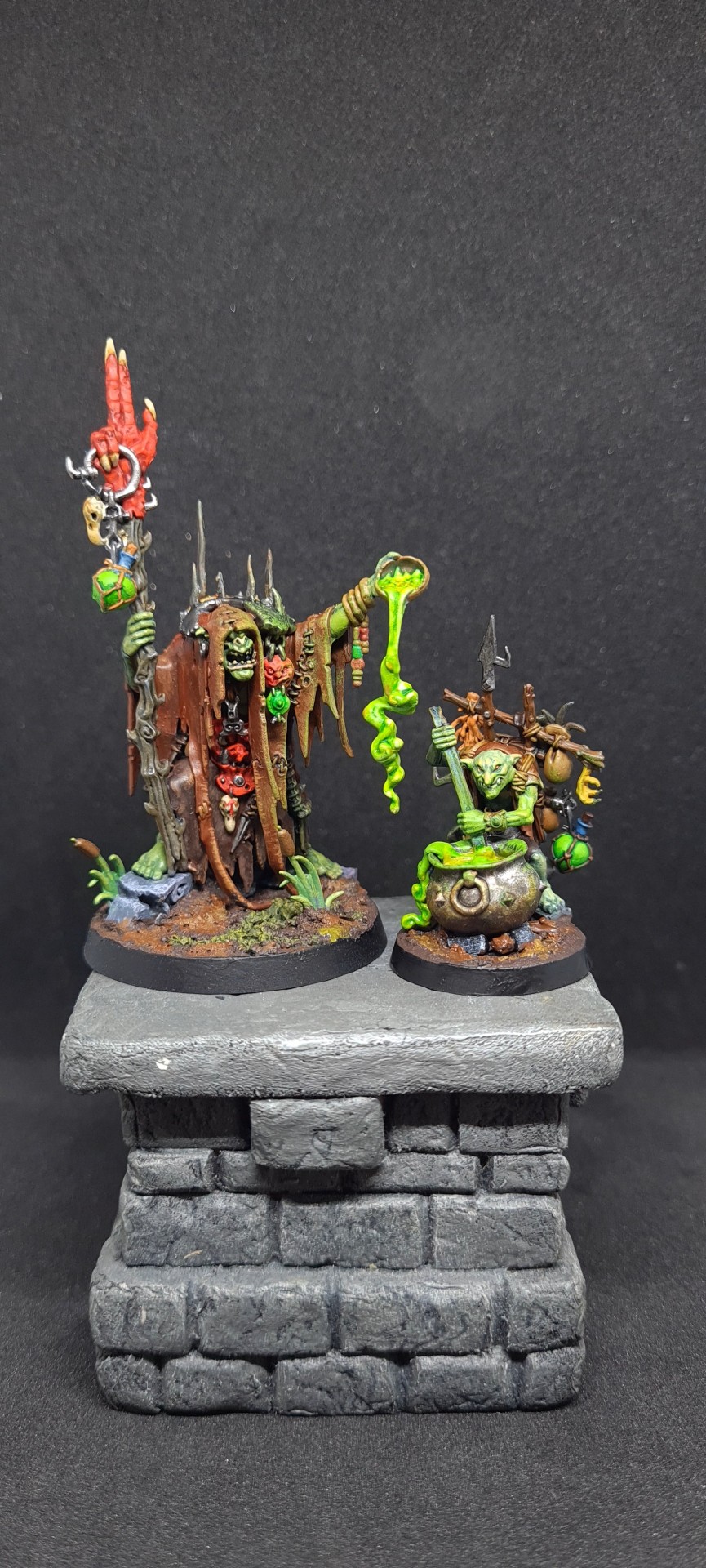
13 notes
·
View notes
Text

Nos juntamos de nuevo por y para la justicia, la paz y la libertad del pueblo palestino.
El Domingo 3 de diciembre, en la Sala Nueva Revuelta, diversos colectivos y artistas de la terreta unimos fuerzas para recaudar fondos que irán destinados a la ayuda humanitaria a través de @fundacioncapp. Con la colaboración de @bdspv y personas afines al movimiento, esta edición especial de Dub Club Alicante #34, X Aniversario, Domingos al Sound, no dejará indiferente a nadie ante el genocidio en la Franja de Gaza.
Sonorizado por Tonkawah SS y Stipa Roots Hi-Fi.
De 10:00h a 20:00h.
I-Tal arroset para comer
Si no puedes asistir, pero quieres colaborar, hemos puesto a disposición entradas de fila 0.
Todos los beneficios obtenidos, destinados a la ayuda humanitaria.
+info en cartel
Anticipadas y fila 0:
https://entradium.com/es/events/7-aniversario-dub-club-alicante-evento-benefico-palestina
#nine mile sound system#stippa roots#rebel guille#lamaka#cizajah#antzoni rubio#sol menguante#chaman charro#newen dubz#rude peli#spiritual vibrations#dub libitum#children of jacob#invadread#landra#tonkawah#free palestine#reggae#dub#music#sound system#palestine#party#dub club alicante#from the river to the sea#palestine will be free
10 notes
·
View notes
Video
youtube
Magos, Brujas Y Chamanes
#youtube#brujeria#bruja verde#brujeria tradicional#misterio#magos#supernatural#esoterismo#esoteric#paranormal#chamanes#chamanismo#poderes sobrenaturales#wicca en español#paganismo#paganism#pagan witch#brujeria pagana
3 notes
·
View notes
Note
Lameth, Saint-C how many likes for y’all to make out ?
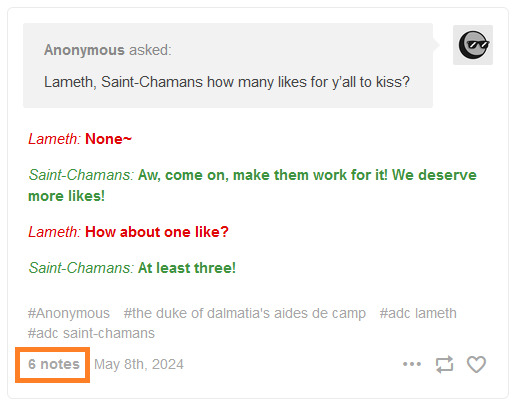
Lameth: Let us give the people what they want!
Saint-Chamans: I wanna be on top!

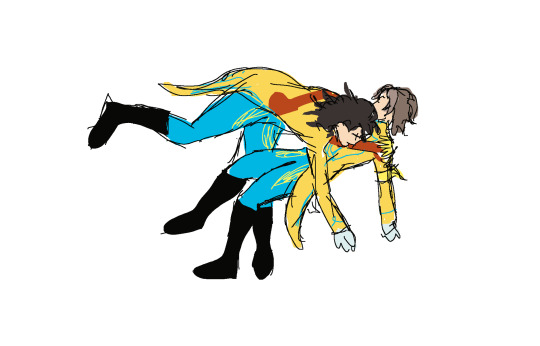
#the duke of dalmatia's aides de camp#adc lameth#adc saint-chamans#event: the adcs are less of a sausage party#anonymous#event: the adcs are partying hard
19 notes
·
View notes
Text
Saint-Chamans about Soult and the "roi Nicolas" affair
So I did it. Here is the testimony of the public prosecutor's crown witness against "roi Nicolas Soult" 😁. Taken from Saint-Chamans' memoirs, translated to the best of my and DeepL's abilities. I'm posting this mostly for @cadmusfly but read at your own risk. As I warned before, this is very long, rather convoluted and may be quite boring. Also, of course I could not resist jumping in to defend Soult at several points.
[…] we advanced cheerfully towards the borders of Portugal, not doubting the success of our expedition; Marshal Soult, following the instructions given to him by the Emperor, flooded the country with proclamations, but we soon saw that they had little effect on a fanatical people who were exhorted by their priests to make a stubborn defence; the excesses, theft and bad conduct of the Duke of Abrantès's army during the first expedition had, moreover, stirred up all the Portuguese against the French name.
Saint-Chamans may not always be the sharpest knife in the drawer, but these observations of his are interesting. Napoleon ordering a flood of proclamations hints at an attempt to peacefully win over the population to the French side from the very beginning (an attempt that Soult would, in his mind, continue in Oporto with different means). It is to be noted that Portugal as a whole had already been occupied and for some time administered by Junot from late 1807 to mid-1808. There must have been a francophile party within Portugal.
While I am not much familiar with Junot’s occupation of Portugal and its "excesses" (@snowv88, do you happen to know if Junot's occupation of Portugal was in some way worse than what had happened in other countries before?), and while this may to a large degree just be Saint-Chamans trying to pass the buck by pointing his finger at somebody else, it is true that a whole bunch of generals who had belonged to Junot’s army during the first occupation of Portugal now were under Soult’s command, re-entering a country that already despised them (this would in particular be so for general Loison, nicknamed "Maneta" and hated with a passion by the Portuguese). Moreover, these generals, whom Napoleon had ordered Soult to take with him, now had entered Soult's staff as supernumerary members without specific duties. So not only did Soult have to take over an army corps that he had never commanded before (his own corps had remained in Germany), and men he did not know and who did not know him, but he also had to deal with a large group of bored officers, with lots of time on their hands to feel ignored or badly treated by their new commander-in-chief.
But I’m already digressing. What I wanted to translate was Saint-Chamans’ opinion of Soult’s alleged attempt to make himself king. Here’s another remark on what Soult’s state of mind may have been like, once the French had managed to enter Portugal and become master of at least some parts of the country. Saint-Chamans has just returned from a journey to general Franceschi, and had barely avoided getting killed in attacks by Portuguese peasants several times on the way.
I took care, when I saw Marshal Soult again, not to tell him about all the misfortunes of my last night: I knew that he became seriously angry when anyone tried to give him an idea of the dangers that accompanied the French in this dreadful country, and of the exasperation of the Portuguese against us; he was extremely persistent in his resolutions and in his undertakings, and he was very annoyed with those who tried, either directly or indirectly, to divert him from them and to make him see the disadvantages. He could not, however, conceal them from himself for long, and this knowledge of his dangerous position threw him into false and hazardous political steps, the gist of which has never been properly grasped and which perhaps only he could have fully explained; but I will speak at greater length about this circumstance in a moment, and I will say frankly what I have seen and what I believe.
Which he then does some pages later, after having related the horrible scenes during the capture of Oporto:
Indeed, despite this brilliant victory, our position was very critical; the army of Sir Arthur Wellesley (since so famous under the name of the Duke of Wellington), 30,000 strong and united with the Portuguese army, was in Lisbon and preparing to march on Oporto; they were commanded by the Portuguese General Sylveira and the English General Sir Robert Wilson (the same man who has since been tried in Paris for having helped escape Lavalette). These latter corps were intended to intercept any communication with Spain.
Here, I believe, Saint-Chamans makes a rather dishonest argument, or at least argues in hindsight, because I do not think the French at the time were even aware of the strong British presence in Portugal. They only figured it out when they tried to go south from Oporto.
If Marshal Soult had not been absorbed by ideas of ambition, which dominated all others in him at the time, he would have realised that his position was untenable and that he had only one course of action to take: to regard Oporto as a conquest which he needed to take advantage of to feed his army well for a fortnight and recover from its fatigues; then to retreat with all his forces to the Minho, to seize Valença, a fortified town in Portugal, on this river, opposite Tuy, of which he would have made an excellent bridgehead which would have communicated from one to the other of these last two towns; he would thus have linked up with the corps of Marshal Ney, whose headquarters were in Coruña, and whose troops occupied Tuy and Santiago; in this way, he could have safely evacuated his wounded and sick to good hospitals established in well-closed towns, instead of being obliged to abandon them to the fury of the Portuguese, as he did when he hastily evacuated Oporto; he would have kept all his artillery, lost at the same time; he would make the part of Portugal between the Minho and the Douro his tributary; he would re-establish direct communication with the French army in Spain and France; his own army, which numbered only 24,000 men, would have lived in abundance; he would preserve for the French army the best entrance into Portugal for the time when they would have been in a position to conquer this country, and until then he could wage a war of exploration there [...].
While it is quite possible that this plan, developped by a Saint-Chamans writing some 15 or 20 years after the events, could have proven successful (even if it does assume that Wellesley would just have watched the French gaining a secure foothold in the country and puts a little too much faith into the forces of Ney who barely was able to hold onto Galicia at this point), it was unfortunately not at all in accordance with the orders Soult had received from Napoleon. These orders simply stated that Soult was to march into Portugal from the north, conquer it and seize Lissabon, for which Berthier in his last dispatches deemed Soult’s single corps sufficient. But if he really needed support, he should receive it from Ney (from the north) or Victor (from the east). A retreat however, by giving up an important city that had been conquered, was simply not an option.
And so Soult, sticking to his orders, remained in Oporto and tried to contact the two corps that were supposed to support him: Ney and Victor (by sending Loison east to Amarante, as we will hear). Unfortunately, both of them had their hands full with problems of their own, Ney had lost contact with Madrid himself, Victor never showed up and may not even have fully understood what he was supposed to do, and since by now Joseph in Madrid was in charge, who paid little attention to what was going on in Portugal, Soult was left utterly alone.
Continuing with Saint-Chamans’ account:
[…] But all these considerations were not in harmony with Marshal Soult's plans, and so he did not give them a second thought. No sooner had he established himself in Oporto than he began to unmask his plan; an officer, half-French, half-Portuguese, named Laffitte, a schemer if ever there was one, who had been sent to his staff for the expedition to Portugal, ostensibly as an interpreter, for he spoke Portuguese fairly well, but in reality as a spy, was his main agent with the Portuguese in this circumstance; at Oporto, this wretch discovered a Portuguese priest named Veloso, who was as rich as he was narrow-minded, and who was promised heaven and earth, provided that Marshal Soult became King of Portugal; at the same time, this ignorant priest was persuaded that he was not a bad man, and that all this was for the greater good of his country; he believed it, and this idea, combined with the fine promises made to him, made him one of the Marshal's most zealous supporters; he acted accordingly. He addressed the people in the streets and public squares; he preached in the churches, he spread money to make supporters for the Marshal, and led by the advice of Laffitte, he succeeded in giving this party, in Oporto and the surrounding area, a certain stability; deputations arrived from Braga, Guimaraens, Olivera, and other towns of which we were the masters, and where part of the population had returned to, soliciting the Marshall to ascend the throne of Portugal; registers were opened in the town of Oporto to receive the votes of the inhabitants, the number of which was very considerable, and General Ricard, Marshal Soult's chief of staff, who had been his aide-de-camp, wrote circulars to the divisional generals insinuating the matter, for the Marshal, despite the affection for him of the good inhabitants of his good cities of Oporto and Braga, felt that he could do nothing without the consent and cooperation of the French army.
So, this is the main testimony that modern historians base their accusation on when it comes to Soult and the »roi Nicolas« issue. Admittedly, it is a damning one. Saint-Chamans obviously is convinced that Soult really wanted to seize the crown and was intriguing on his own behalf, and his testimony carries particular weight, as, being Soult’s aide-de-camp, having his marshal’s trust and being in his inner circle, Saint-Chamans was in a position to witness everything that was going on in Oporto at close quarters …
While all this intrigue was going on, I was on a mission twelve leagues from Oporto near generals Loison and Delaborde […]
Oh. Or maybe he wasn’t.
So, what Saint-Chamans relates above is not something he has witnessed himself, it is what he has heard during the time he spent with generals Loison and Delaborde – who would later be among the main gossips about precisely this topic (Thiébault seems to have gotten the story from Loison; Delaborde, as to him, apparently backpedalled somewhat on his accusations when he was called upon directly to testify). But I’m sorry, I have interrupted Saint-Chamans again:
While all this intrigue was going on, I was on a mission twelve leagues from Oporto near Generals Loison and Delaborde who, with an infantry division and some cavalry, were charged with taking Amarante, and especially the bridge there (over the Tameyra); Marshal Soult announced loudly that, from there, this head of column would move towards Zamora, in order to communicate with the French army in Castile; but he was too good a military man to seriously entertain this project; if he had really wanted to communicate with French troops, it was towards Galicia, where he positively knew that Marshal Ney's corps was, that he would have manoeuvred; he had only twenty leagues to go, and he would have found himself opposite Tuy, which was to have been occupied by the French of Marshal Ney's corps.
Whenever I reflected on the military movements of Marshal Soult in this circumstance, I became convinced that he did not want to communicate with the French army in Spain; above all he wanted to avoid all relations with Marshal Ney, whose enmity against him and violent character he knew: he had every reason to believe that this Marshal would hasten to say loudly and to write to France that he, Soult, had sacrificed the interests of the Emperor and of the army to his personal ambition in this circumstance; and this is what did not fail to happen.
A few days after our entry into Oporto, I had been sent to Amarante; I had come back for a while, and then returned a second time; there was still only vague talk of the Marshal's plans; [...].
Leaving out the relation of poor Lameth’s death of which Saint-Chamans heard at this time and which moved him profoundly.
These reflections, which struck me even more on learning of his death than at the time I am writing these lines, had inspired in me a certain distaste for the military career and the uncertainties it presented; moreover, the grief I felt at having been for several months without any news of my family or my country added to my gloomy mood; I imagined that the greatest happiness I could aspire to in the future was to return to France and live there peacefully at home.
These »dispositions moroses«, the gloomy mood Saint-Chamans alludes to, in my opinion is also not to be disregarded. Saint-Chamans hardly was the only one who felt that way, this rather may have been the general feeling of the whole army, including its marshal. The men were alone in a hostile country, barely holding out, without instructions, support or clue what to do next.
It was in these circumstances that I returned to Oporto; there I found Marshal Soult completely immersed in his political combinations, and seemingly little concerned with military events; I wanted to ask him about this several times, but he always stopped me by telling me that in Portugal it was from his office that he was waging war.
It was hardly the time, but I was so accustomed to seeing him as a very superior genius that, from his apparent tranquillity, I still had the good faith, in this alarming crisis, to hope for a favourable outcome.
Here again I can’t help but wonder if, at the time, Saint-Chamans really saw an »alarming crisis«, or of he was writing in hindsight.
But his actions were becoming so ambiguous that we didn't know what to make of them ourselves, and one day when we were joking about it at the table of the aides-de-camp, all of us young men who liked to laugh, we distributed the great offices of his court among ourselves; I was immediately named grand equerry, because of all his aides-de-camp, I was the one who knew horses best and had served most in the cavalry; another was grand chamberlain, that one grand veneur, etc. Finally, we laughed and joked a lot about this subject, because despite what we saw and heard, none of us could imagine that such an absurd project as that of making himself king of Portugal had seriously entered the mind of the Marshal, that until then we had seen so sharp.
Here Saint-Chamans kind of confirms my suspicion that much of what he writes in his memoirs is argued in hindsight. At the time, the rumours apparently were there, but were seen as so ridiculous by everyone, including Saint-Chamans, that they merely served to amuse Soult’s (as usual very outspoken and exuberant) ADCs over supper. If they had truly taken the allegations serious, would they not have needed to take measures, to at least talk to Soult's chief-of-staff about it?
This table talk caused a stir in the army; the staff officers who were present, the officers on guard duty, even the servants, commented on it; I think that this conversation (1), reported to the Marshal by his associates, gave him food for thought, and a few days later he sent for me in the afternoon and took me for a walk with him in an orange garden where he sometimes went to relax from his work in the cabinet.
Footnote (1) seems to be a remark by Saint-Chamans himself that I am not quite sure how to translate:
On nous en fit un crime en France. - One turned this into a crime of us in France. (We were made to feel like criminals because of it? - By whom? Soult? Napoleon? And when? Most of the guys joking at that table would not return to France for years?)
We were alone, and he wasted no time in starting up a conversation: he had made the right choice, for I have never known how to make courtship at the expense of truth; he knew that better than anyone, and perhaps that was why he had chosen me.
He got straight to the point: - What do they say about me here?
- I've only been back a short time, but I'm hearing everywhere that you want to make yourself King of Portugal.
He looked at me fixedly, but without appearing surprised or angry; I remained cold and did not give him the explanation he seemed to be expecting, because I wanted to be questioned; that's the way to avoid saying more than you're being asked.
- I can imagine that, he continued. But why was I sent here? why was I put in the awful position I am in now? I can only get out of this by dividing the Portuguese amongst themselves, and to do that I am using the best political means in my power, because I have no money to throw at them.
- Do you think, Marshal, that these means will not be misinterpreted in the Tuileries, and that they will not try to frame you as a criminal?
- You're right, but I repeat that I have no other way of getting out of this, and the Emperor will do me justice.
After a few moments of silence, during which he seemed painfully agitated, he added:
- There will be many more cries in France when it is known that I tolerate the inhabitants of Oporto continuing their trade with the English, when people can say that I myself sell them wines, as I am currently trying to sell them some of those we took on our way here.
- There is no shortage of people in France, or even in Spain, I would say, who, in order to harm you, will represent these steps in very black colours.
- I'm expecting it, he continued in a sort of violent despair; I may have to put my head on the scaffold, but when I go up there, I'll have the consolation of telling myself that I've done all that I could to save 20,000 Frenchmen from the sad position to which they are reduced! Do what you must, come what may.
It was one of his favourite maxims, either because it was truly in his character, or because he wanted to persuade people that it was the rule of his conduct.
We had reached this point in our conversation, which could have become interesting, for he was ready to be trusting and I to talk, something that did not happen to both of us every day, and I was beginning a question about his military movements, to ask him why he was not setting off to cross the Minho again, when we were joined, at the bend in the path where we were walking, by General Ricard, who was coming towards us with a bundle of papers: These were urgent reports from the generals commanding our outposts at various points; the Marshal returned to give orders, and our conversation ended there; I never took it up again with him on this subject.
Which, my dear Saint-Chamans, is a shame.
The idea that I have formed of Marshal Soult's conduct in this circumstance has always been that he wanted to be asked to be king of Portugal by the inhabitants of the part of this country of which he was master; that then, having taken this first step, he would have solicited the votes of the army that he commanded; these would have been recorded in registers for each corps or staff, and he would then have placed all these documents before the Emperor, asking for his approval and making him aware that this was the only way to keep the Portuguese in the interests of France; perhaps in this way he would have succeeded, at least for a while, in his plans.
Whereas the idea that I get from this relation is that:
Saint-Chamans heard all the malicious rumours from Loison and Delaborde, but, being Saint-Chamans, did not think much about it.
Back at headquarters, Saint-Chamans immediately shared the stories he had heard with his fellow ADCs, who found them hilarious and joked endlessly - and loudly - about them during the all-night-party they held on account of Saint-Chamans's return.
An exasperated Soult, informed of what his aides had been up to this time, called for Saint-Chamans (whom he genuinely liked) in order to set him straight, but was interrupted by daily events.
Some twenty years later, when Soult had thrown in with the July Monarchy and supported Louis Philippe, thus - in Saint-Chamans's mind - breaking his vows to Charles X and the older branch of the Bourbons, Saint-Chamans decided that Soult had been an ambitious egotist all along, and wrote his memoirs accordingly.
But that's me. As I said, I am hardly unbiased. It is, however, interesting that Saint-Chamans, despite this event, would not break off relations with his marshal. And also, that we have another ADC, who in his memoirs states just as clearly that all these rumours were bullshit. That aide would be Petiet - not always well-disposed towards Soult, but in this case ready to defend him against all accusations. But I have rarely seen Petiet's testimony taken into account.
Make of it what you want 😊
23 notes
·
View notes
Text
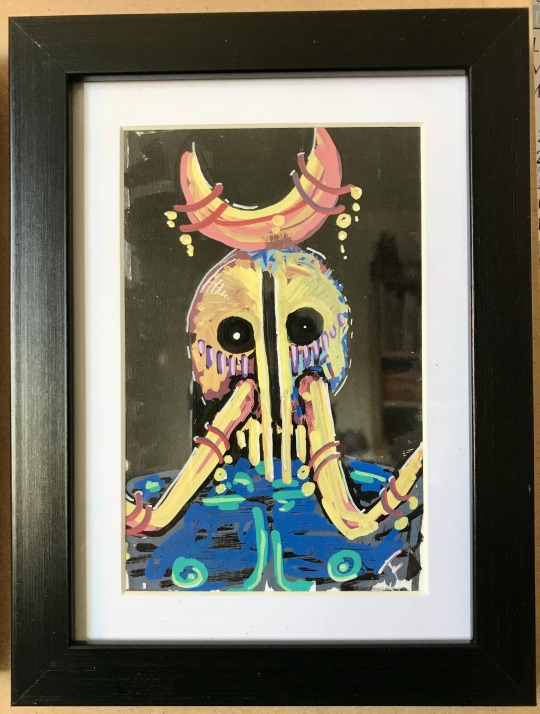

Benoki / JF +☉♛
#artwork#artists on tumblr#benoki#art#draweveryday#drawing#drawthisinyourstyle#hand drawn#mask#face mask#posca pens#posca markers#poscaart#posca paint markers#voodoo#ritual#chaman#JF+☉♛
6 notes
·
View notes
Text
decided to get a start on dodgy machine translating saint-chamans' memoir becuase im in the mood for banana boys
I took up the pen, not with the intention of writing a book, but just to recount to my kin the things I have seen and the role I played in them; I will tell them the truth, nothing but the truth, I will try to present myself to them morally naked; they will not read me until I am gone, so I have no interest in disguising anything: one does not blush in the tomb; moreover, not wanting to be read by others, I put no vanity into what I write, and if the occasion presents itself, I will openly air my dirty laundry in the family.
morally naked
excuse me
Let me make a comparison that may seem a bit ignoble, but seems apt to me: a merchant adulterates his wine, either to give it the appearance of a quality it does not possess, or to increase its quantity, always with the intention of selling it better; I, who am not selling my drug, want to deliver it to my nephews as it is, and make them swallow pure Saint-Chamans; I care little for their grimace if they do not find the vintage good.
excuse me
#cadmus rambles#cad rambles about dead frenchmen on main#alfred saint-chamans#napoleon's marshals' adcs#napoleonic era#napoleonic wars#cad does dodgy machine translations
3 notes
·
View notes
Text

The Jeff Beck Group - Turku, Finland 1971
#the jeff beck group#1970s#classic rock#jeff beck#cozy powell#bobby tench#max middleton#clive chaman#on stage#finland#1971#jazz rock
4 notes
·
View notes